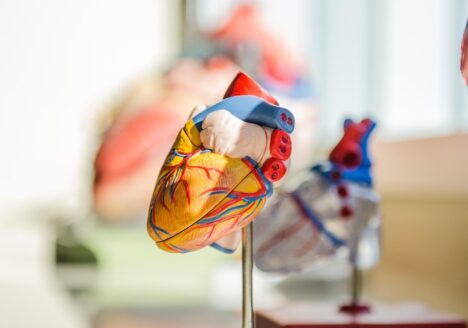Tag / Ryan Pferdehirt
-
Case Study: When is it ethical to override a patient’s medical wishes?
Bioethics case study on Mr. Schumann, who signed an advance directive seven years ago indicating that he would not want life-sustaining treatment if he were unconscious with no hope of recovery. The family acknowledges the directive but insists that, if he could speak today, he would want everything done – for their sake.
-
Case Study: Autonomy and Moral Distress Father Trent Chooses to Reject a Kidney
Bioethics case study on Fr. Trent’s request presenting a complex ethical dilemma involving organ allocation policy, personal autonomy, and the role of altruism in life-saving medical decisions.
-
Case Study – Immigrant Caregiver Mother Fears Visit to Hospital
Bioethics case study in which Eve’s mother, Gloria, is her primary caregiver and sole means of transportation to medical appointments. An immigrant from a foreign country, Gloria has been hesitant to accompany her daughter to the hospital. Fearing potential issues with the U.S. Immigration and Customs Enforcement (ICE), Gloria is afraid to visit the hospital, which in turn prevents her from driving Eve to her chemotherapy appointments.
-
Case Study – Should a Dying Patient Receive Pain Medications or Donate Organs?
Bioethics case study on a dying patient receiving pain medication OR donate organs in VIDEO and PRINT. Should we allow the patient to have a peaceful passing, but not allow them to donate organs which the patient had expressly stated they wanted to do?
-
Case Study – The Law or Ethics: Which Should Take Priority?
Bioethics case study on law and ethics in VIDEO and PRINT. What is legally supported isn’t always ethically supported. So what do you do when these two ideas conflict? Do you prioritize what you believe is right for the patient, or do you follow what the law allows?
-
Case Study – Beneficence: Obligatory, Ideal and the Gray Space In Between
Bioethics case study on beneficence in VIDEO and PRINT. What is our responsibility to this patient? What does this patient deserve? Would it be obligatory beneficence for this patient to receive chemotherapy, or would it be ideal beneficence for that patient to receive it?
-
Case Study – Personhood in the Age of Dementia
Bioethics case study on personhood and dementia in video and print. Patients should be allowed to make their own medical decisions, which means a person should be allowed to make their own medical decisions. But how do you define what a person is regarding cognitive decline in patients and dementia?
-
The Pitt: Not Your Average Medical Drama
The Pitt grabbed Ryan Pferdehirt’s attention primarily because of its location. But it wasn’t long before the show impressed him with its realistic depiction of healthcare professionals doing their best to care for patients in a fast-paced, urban core ED.
.












